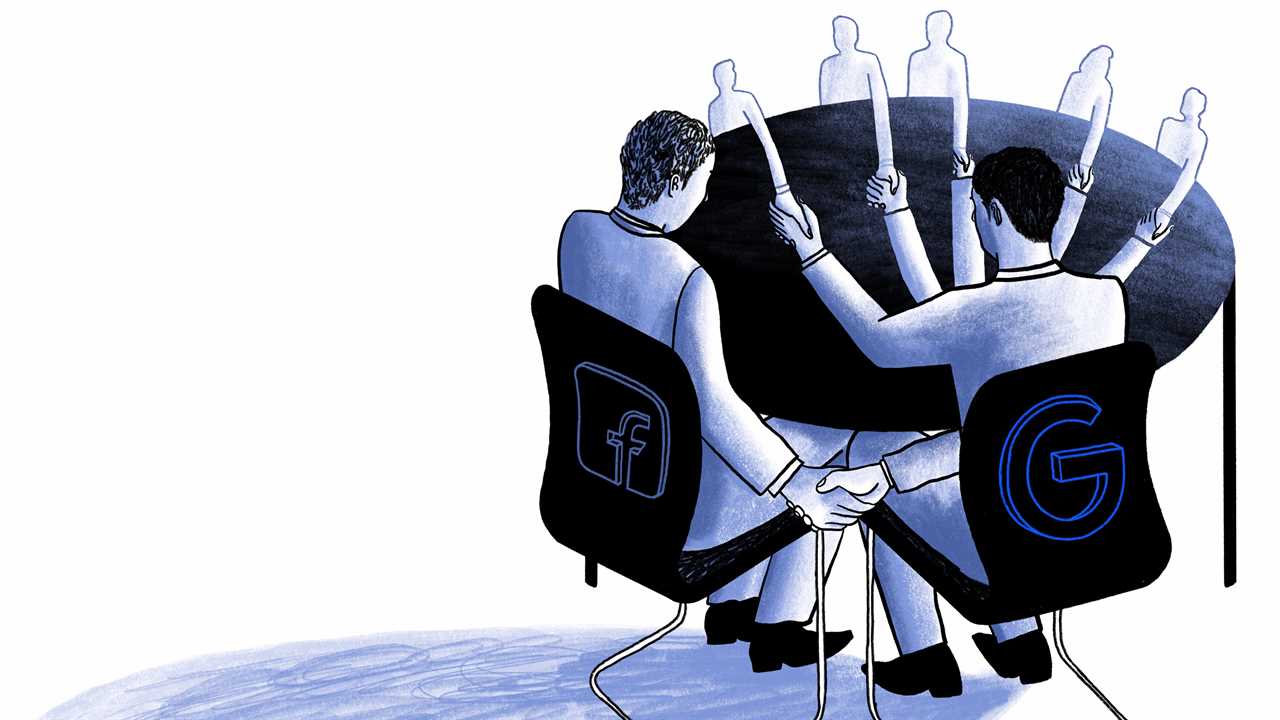
At the center of an antitrust lawsuit filed by 10 state attorneys general last month is a deal Google extended to Facebook to be a partner in the digital advertising space, according to court documents.
Details of the agreement, based on documents the Texas attorney general’s office said it had uncovered as part of the multistate suit, were redacted in the complaint filed in federal court in Texas last month. But they were not hidden in a draft version of the complaint reviewed by The New York Times, report Daisuke Wakabayashi and Tiffany Hsu.
Executives at six of the more than 20 partners in a digital advertising alliance, all of whom spoke on condition of anonymity to avoid jeopardizing their business relationships with Google, told The Times that their agreements with Google did not include many of the same generous terms that Facebook received and that the search giant had handed Facebook a significant advantage over the rest of them.
Perhaps the most serious claim in the draft complaint was that the two companies had predetermined that Facebook would win a fixed percentage of auctions that it bid on. “Unbeknown to other market participants, no matter how high others might bid, the parties have agreed that the gavel will come down in Facebook’s favor a set number of times,” the draft complaint said. A Google spokeswoman said Facebook must make the highest bid to win an auction, just like its other exchange and ad network partners.
Facebook had 300 milliseconds to bid for ads sold through Google’s network, according to court documents. But the executives at Google’s other partners said they usually had just 160 milliseconds or less to bid.
Facebook was allowed direct billing relationships with the sites where ads would appear, according to the court documents. For most other partners, Google controlled pricing information, effectively putting up a wall and hiding how much of winning bids sites end up receiving, the executives at other companies said.
Google agreed to help Facebook have a better understanding of who would be shown the ads by helping the company identify 80 percent of mobile users and 60 percent of web users, the documents said. But several other partners said they had little such help understanding who was being shown ads.
Did you miss our previous article...
https://trendinginthenews.com/tech-giants/amazon-web-drama-draws-the-wrath-of-indias-hindu-nationalists






